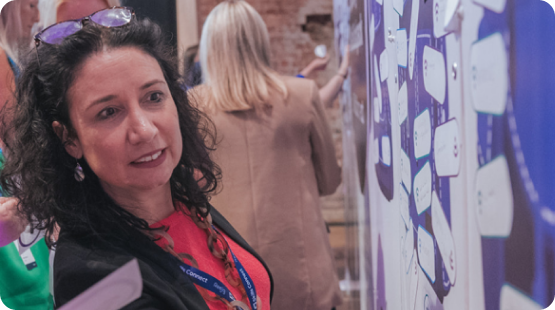One Common Language for Work
Blog Post Body
Table of Contents
Talk to a Work Strategist
See the Work Operating System in action and start re-engineering work for AI.
Subscribe to our newsletter
The latest insights on re-engineering work for AI
We've ridden the waves of every shiny new promise about the future of work:
"Death of the job description!" "Job titles are passé—it's all about skills!" "Job architectures are dinosaurs; switch to a skills-based approach!"
Yet, despite all the great intentions and hype, we keep hitting roadblocks and stumbling.
I'm not here to rehash problems; I'm bringing solutions. My team and I have uncovered the missing piece: A Common Language for Work—focused on tasks and task allocation. This is the real key to unlocking your workforce's full potential. Enough talking - it’s time to take action.
Work has Tasks > Tasks need Skills > People have Skills
Bold take: Time to ditch job titles and embrace a task-oriented approach
Static job titles just aren’t fit for purpose in this new world of work. Set them aside and consider your Work Ontology™, which unbundles traditional job architectures to atomize components such as skills required, tasks and task adjacency, requirements, and time allocated. This shift helps address three major challenges leaders often face:
- Rigid silos and structures blocking work movement: Traditional organizational structures prevent workers from moving where they're needed most, stifling flexibility and responsiveness.
- Lack of understanding of the work being done beyond job titles: Job titles often mask the true nature of the work, making it difficult to understand and optimize workflows.
- Avoiding task duplication and workforce bloat: Without clarity on tasks, organizations risk duplicating efforts and inflating their workforce unnecessarily.
Our Work Ontology provides a common language that gets everyone on the same page. It clarifies communication and ensures tasks are assigned based on actual capabilities, whether the workers are full-time, flex, digital, or contractors. This clarity not only boosts efficiency but also fosters a cohesive and adaptable work culture, ready to tackle the challenges of a fast-changing market.
To get started, unbundle your current roles into their core components—skills, tasks, and time allocation. This process builds a detailed inventory of what each job truly entails, forming the backbone of your common language for work.
Pro tip: This isn’t just an “HR Initiative.” You'll need all hands on deck. Leadership must actively engage to ensure a comprehensive view of the work being done.
Once you've mapped out these components, leverage technologies like generative and Ethical AI to refine how tasks are matched to the most suitable individuals. This helps accurately align tasks with the right people, enhancing overall productivity and ensuring that all employees are utilized to their full potential.
Responsible take: Now, get the right work to the right worker
Being responsible in task delegation means using this common language to go beyond the core team and consider all available talent pools, while also weighing the social impacts. To allocate tasks effectively, unbundle the work to identify what needs to be done. Then, find the best worker for the work, not just the most convenient option. This approach involves looking beyond your core team, including flex workers and freelancers.
For instance, flex workers—many of whom are women balancing careers and family responsibilities—are vital to the workforce. Between February 2020 and February 2021, 2.4 million women left the workforce compared to 1.8 million men, highlighting the importance of alternative work models. Many of these women have turned to gig work to stay professionally active while being present for their families. Without flexible options like freelance work, we risk losing their valuable contributions.
Thoughtful task allocation and our Work Ontology can help organizations implement ethical practices, ensuring everyone has access to meaningful work, regardless of their circumstances. This approach not only ensures tasks are handled by the most capable individuals but also promotes an inclusive workforce with equal opportunities for all.
It's a win-win: the right work is done by the right people, and everyone gets a chance to contribute meaningfully.
Now's the time for leadership to integrate these practices and navigate the future of work with clarity and purpose.
Sign up for our full email newsletter to get weekly resources, exclusive extras, and more delivered straight to your inbox. 📩
Talk to a Work Strategist
See the Work Operating System in action and start re-engineering work for AI.
Subscribe to our newsletter
The latest insights on re-engineering work for AI


